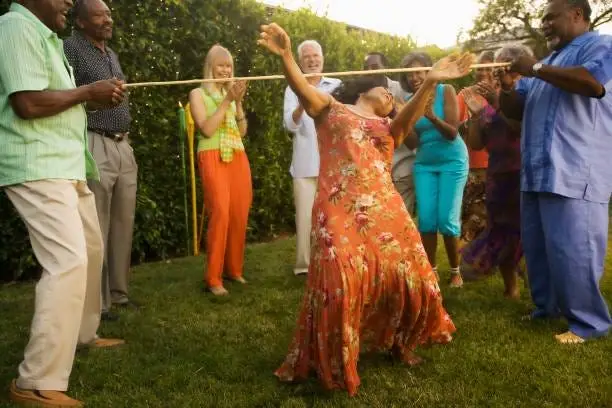“Look, if you had one shot or one opportunity
To seize everything you ever wanted in one moment
Would you capture it or just let it slip?” Eminem
What if slowing down in retirement isn’t the key to happiness but something that could harm your health and mind?
For decades, retirement has been sold as the ultimate reward — a time to kick back, relax, and leave stress behind. However, emerging research suggests that a sudden drop in physical and mental activity can lead to cognitive decline, physical health risks, and even loneliness.
Use or lose it…
Instead of viewing retirement as an end, what if we saw it as a new beginning? The healthiest retirees aren’t those who stop moving; they’re the ones who stay engaged — whether through part-time work, hobbies, or volunteering.
If you’re planning for retirement, it’s time to rethink the myth that doing less equals more joy. Let’s have a look at some different retirement options.
The Retirement Myth: A Slower Pace Isn’t Always the Answer
Contrary to popular belief, slowing down after retirement could have negative consequences, leading to isolation, mental stagnation, and physical health issues.
The traditional view of retirement as a time for endless relaxation and minimal activity is deeply ingrained in our society.
However, research increasingly shows that this approach can harm our mental and physical well-being. Studies have found that retirees who drastically reduce their activity levels are at higher risk for cognitive decline, depression, and a range of health problems.
The sudden loss of structure, purpose, and social connections often accompanying retirement can leave individuals feeling lost and unfulfilled.
Instead of viewing retirement as a time to slow down, we should see it as an opportunity to redirect our energy into new pursuits that keep us engaged, challenged, and connected. By maintaining an active lifestyle, we can preserve our health, boost our happiness, and continue to grow as individuals.
Retirement shouldn’t mean shutting down; it should mean shifting gears.
The Science of Staying Active: How Engagement Boosts Health and Happiness
Numerous studies confirm that remaining active — both mentally and physically — yields significant benefits for overall health and longevity.
Regular exercise improves cardiovascular health and muscle strength while stimulating brain function, reducing the risk of cognitive decline.
Mentally engaging activities, such as puzzles, reading, or learning new skills, improve memory and boost processing speed. Social interactions lower stress levels and foster a sense of belonging, contributing to overall well-being.
The combined effect of physical, mental, and social activity creates a powerful synergy that increases lifespan, improves mood, and enhances quality of life.
Transitioning into Retirement: How to Prepare for a Fulfilling Post-Work Life
Preparing for retirement involves more than simply ending a career — it’s about finding new ways to stay engaged and create purpose in life.
Making a successful transition into retirement involves proactive planning and a focus on ongoing engagement.
Think about interests and passions you’ve set aside during your career; pursue hobbies like painting, gardening, hiking, or going on random adventures.
Consider part-time work or consulting roles to maintain a sense of purpose and social interaction.
Implement a daily routine that includes physical activities — whether it’s mountain biking, pickleball, yoga, walking, or joining a local sports team. Volunteering is also a fantastic way to stay active; look for opportunities based on causes you care about, which can provide fulfillment while connecting you with like-minded individuals.
Getting involved in community events, workshops, or classes helps create a supportive network.
This is a perfect time to reinvent yourself!
The Role of Social Connections: Why Relationships Matter in Retirement
Social connections are an important part of a vibrant retirement. Maintaining relationships with family, friends, and community members can significantly impact both mental and physical well-being.
Isolation in retirement may lead to feelings of loneliness and depression, while regular social interaction nurtures emotional resilience and reinforces a sense of belonging. Engaging in community events, joining clubs, or participating in group activities provides valuable opportunities to share experiences and gain fresh perspectives.
Whether reconnecting with old colleagues or forming new friendships through shared interests, staying socially active enriches your daily life and helps keep your mind sharp.
Strong social networks in later years are linked to greater happiness and longevity, making them as essential as physical exercise and intellectual challenges.
Finding Purpose After Work: How to Stay Mentally and Emotionally Engaged
Retirement can be an opportunity to explore passions you never had time to, like starting a new business, pursuing hobbies, or making a difference in your community.
Finding a sense of purpose is crucial for mental and emotional well-being in retirement. Without the structure and goals provided by work, some retirees struggle with feelings of aimlessness or loss of identity.
To combat this, focus on activities that provide a sense of meaning and accomplishment. This could involve learning new skills — perhaps take up painting, learn to play an instrument, or study a subject that’s always intrigued you.
Consider how you can use your lifetime of experience to benefit others through mentoring, volunteering, or even starting a small business.
Engage in activities that challenge your mind, like puzzles, strategy games, or learning a new language.
Retirement is not about stopping growth but about having the freedom to grow in new directions.
How to Reframe “Retirement”: A New Perspective on Aging
Reframing retirement. Words shape reality — swap “retirement” for “rewirement.”
Retirement doesn’t have to be the end of productivity and purpose; it can be chapters full of new beginnings. Japan’s ikigai (reason for being) philosophy teaches that fulfillment comes from blending what you love, what you’re good at, and what the world needs. That doesn’t expire anytime!
Consider “encore careers” — part-time work, consulting, or passion projects. A friend who loves gardening launched a blog; another ex-accountant teaches budgeting at the local community centers.
The key? Stay curious. Learn an instrument, write memoirs, explore Airbnb hosting or go on serendipitous adventures.
Aging isn’t decline — it’s accumulated wisdom in search of platforms. As one 70-year-old entrepreneur put it: “I’m not retiring; I’m finally working on my terms.”
Put your life’s learning into a productive new career.
Retirement isn’t about endings — it’s about reinvention. Ditch the rocking chair for hiking boots, book clubs, or startups. Stay active, stay social, and most importantly, stay you. The healthiest retirees thrive because they never stopped growing.
As George Bernard Shaw said, “We don’t stop playing because we grow old; we grow old because we stop playing.”
So, ask yourself: What’s my next adventure? Whether it’s mentoring, traveling, or finally writing that novel, your best years are waiting for you. Make it unforgettable.
Instead of slowing down, embrace the opportunity to create a life that excites you.
Rewire Don’t Retire!








